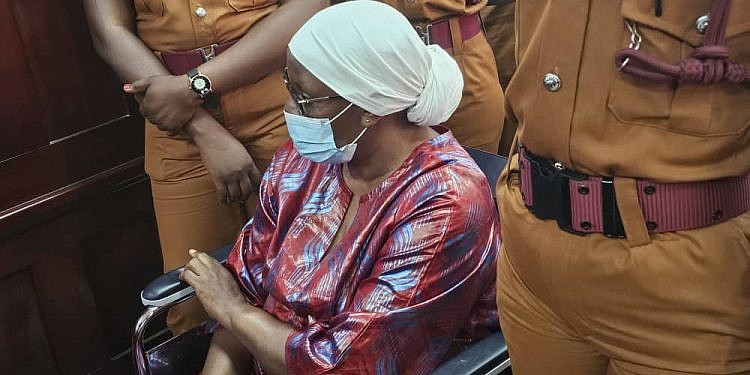Dr. Richard Ambayo, the pathologist who examined Henry Katanga’s body, has retracted his earlier testimony, stating he doesn’t know Martha Nkwanzi Katanga, one of the suspects.
This pathologist had earlier told court that Martha helped him identify Katanga’s body before a forensic examination.
Defense lawyers, led by Elison Karuhanga, questioned Dr. Ambayo’s credibility, suggesting he may have been biased by Investigating Officer Detective Sgt. Beteise.
“It’s possible for an expert to be biased,” Karuhanga said. “Cognitive bias can occur when someone gives you information that influences your work.”
Dr. Ambayo agreed admitted the same, “Yes, I’m aware of the effects of bias.”
The lawyers pointed out inconsistencies in Dr. Ambayo’s testimony, including his earlier statement that the entry wound was on the right side of the head, contradicting his postmortem report.
The defense team presented a photo of Katanga’s body showing lacerations on the left side of the head, which Dr. Ambayo maintained could be exit wounds.
The hearing of the Katanga murder case continues before the High Court, with defense lawyers cross-examining Dr. Ambayo.
The lawyers insist the gun entry wound is located on the left side of the head, not the right side as stated in his postmortem report.
They argue Dr. Ambayo is either incompetent or biased by Detective Sgt. Beteise, leading him to conclude Katanga was shot on the right.
Dr. Ambayo clarified, “We confirmed the identification because the request came with the name. I cannot confirm that Martha Nkwanzi, the daughter, identified the body.”
According to Police form 48A, the deceased allegedly shot himself after a domestic violence incident.
The defense team confronted Dr. Ambayo with a photo of Katanga’s body showing lacerations on the left side of the head, but he maintained exit wounds can also have lacerations.
The defense lawyers further accused Dr. Ambayo of leaking his report to an online blog and two UPDF soldiers, who used it to initiate an inquest into Katanga’s death.
Dr. Ambayo however denied releasing the report before its presentation in court.








































